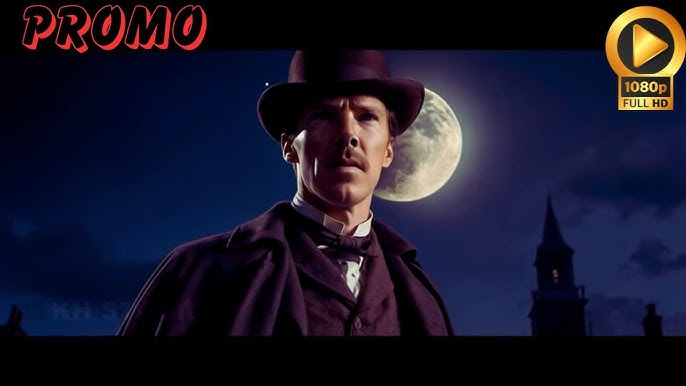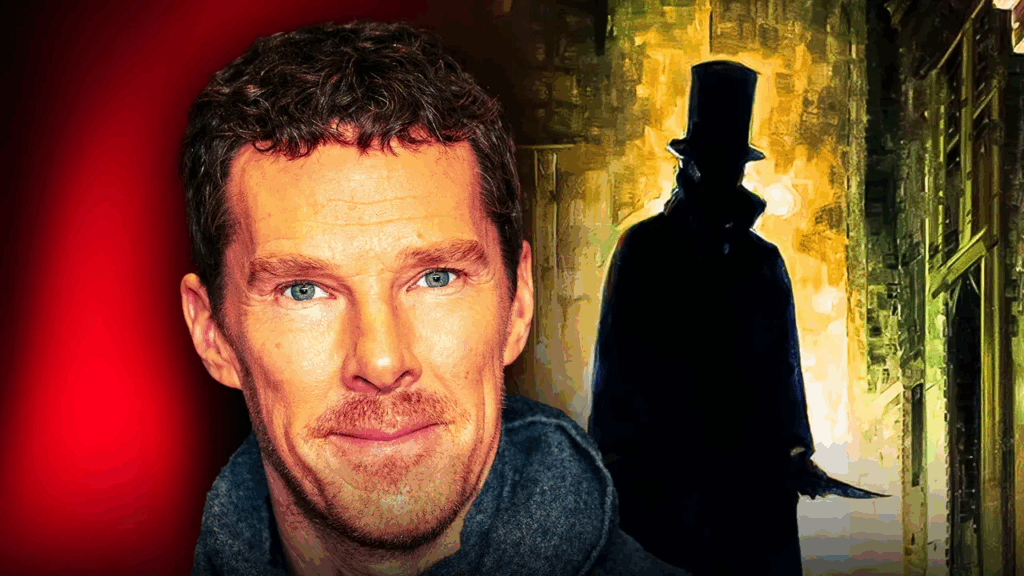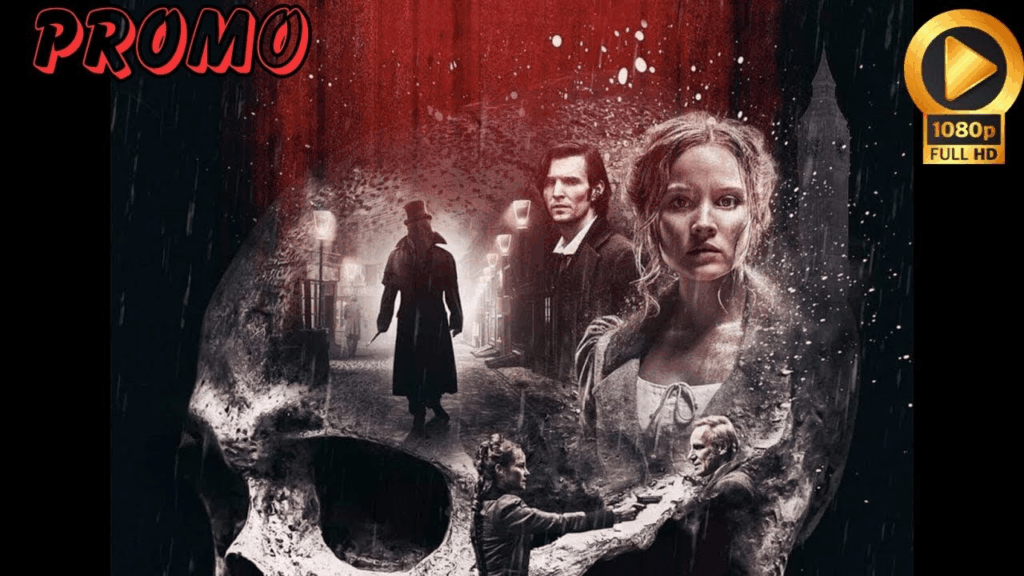Introducing Jack the Ripper (2025): A Bold Comedic Take on a Notorious Legend
Introduction
Jack the Ripper (2025), a comedic spoof of the infamous serial killer, is currently in production in London, bringing a fresh and irreverent perspective to one of history’s most enduring mysteries. Directed by Michael Head and produced by Frankham Films, this British film stars Charlotte Kirk, Jamie Lomas, Katie Price, Kimberly Wyatt, and James Phelps, alongside an ensemble cast of notable actors. Set in the shadowy streets of London’s Whitechapel district in 1888, the film reimagines the Jack the Ripper saga as a satirical battle between a secret organization led by the titular killer and a group of fierce female assassins. Unlike traditional Ripper films that lean into horror, mystery, or historical drama, this production embraces dark comedy to explore themes of resistance, empowerment, and societal critique, all while poking fun at the mythos surrounding the unidentified murderer.
This article provides a detailed exploration of Jack the Ripper (2025), covering its plot, historical context, production details, thematic elements, anticipated reception, and its place within the broader landscape of Ripper-inspired cinema.

Plot Summary
Set in the grim, fog-laden Whitechapel district of London in 1888, Jack the Ripper (2025) offers a wildly unconventional take on the historical murders. The story centers on Lottie (Charlotte Kirk), a woman plagued by the terror of Jack the Ripper (Jamie Lomas), who is not merely a lone killer but the head of a secret organization known as The Court. This shadowy group perpetuates tyranny, carnage, and male oppression across Victorian London, using the Ripper’s infamy as a tool to instill fear and maintain control. Standing against this malevolent force is John Grey (Gary Webster), a lone hero determined to challenge The Court’s reign of terror.
The narrative takes a bold turn with the introduction of Jackie (also played by Charlotte Kirk), the leader of a group of kick-ass female assassins. This team orchestrates a series of daring hits to dismantle The Court and bring Jack the Ripper to justice. The film blends high-energy action with sharp-witted humor, using exaggerated characters and absurd situations to satirize the Ripper legend while highlighting themes of female empowerment and resistance against patriarchal structures. Expect over-the-top fight scenes, biting dialogue, and a playful subversion of the grim historical reality, as the film prioritizes entertainment over historical accuracy.

Historical and Cinematic Context
The real Jack the Ripper terrorized London’s Whitechapel district in 1888, committing at least five brutal murders of women, primarily prostitutes, known as the “canonical five”: Mary Ann Nichols, Annie Chapman, Elizabeth Stride, Catherine Eddowes, and Mary Jane Kelly. The killer’s identity remains unknown, fueling countless theories, books, and films. His gruesome methods—slashed throats, abdominal mutilations, and suspected anatomical knowledge—captured the public’s imagination, amplified by sensationalist media coverage and letters like the “Dear Boss” letter, which coined the name “Jack the Ripper.”
Cinematic adaptations of the Ripper story date back to the silent era, with Alfred Hitchcock’s The Lodger (1927) among the earliest, based on Marie Belloc Lowndes’ novel. Over the decades, films like Murder by Decree (1979), From Hell (2001), and The Lodger (1944) have explored the Ripper through lenses of horror, mystery, and conspiracy, often focusing on identifying the killer or dramatizing the police investigation. These films typically emphasize the grim atmosphere of Victorian London, the terror of the murders, or speculative theories involving figures like the royal family or Freemasons.
Jack the Ripper (2025) stands apart by rejecting the somber tone of its predecessors. Instead, it aligns with a rarer subset of Ripper films that embrace satire or genre-blending, such as The Ruling Class (1972), a British comedy that used the Ripper as a backdrop for social commentary. By framing the Ripper as the head of a fictional secret society and pitting him against a team of female assassins, the film subverts the traditional narrative, offering a modern, comedic spin that pokes fun at the mythologized killer while addressing contemporary themes of gender dynamics and resistance.

Production and Direction
Directed and written by Michael Head, known for The Last Heist, Jack the Ripper (2025) is produced by Frankham Films, a company with a track record in low-budget, genre-driven projects. The film is currently being shot in London, leveraging the city’s historic streets to evoke the Victorian era, though its comedic tone allows for creative liberties with period accuracy. The production team aims to balance the gritty backdrop of Whitechapel with the exaggerated, almost cartoonish energy of a spoof, likely incorporating stylized sets and costumes to enhance the satirical vibe.
The cast is a mix of recognizable names and genre veterans. Charlotte Kirk, who plays dual roles as Lottie and Jackie, brings experience from horror films like The Reckoning. Jamie Lomas, known for his work on British soap EastEnders, takes on the role of Jack the Ripper, infusing the character with a villainous charisma suited to the film’s over-the-top tone. Katie Price, a media personality with a cameo in Sharknado: Global Swarming, adds a pop-culture flair, while Kimberly Wyatt of the Pussycat Dolls and James Phelps, famous as Fred Weasley in the Harry Potter series, round out the ensemble. Supporting actors include Chloe Meadows, Gary Webster, Sophie Rankin, Perry Bensen, Amber Doig-Thorne, Martin Sherwood, and Chrissie Wunna, contributing to the film’s eclectic mix of talent.
While specific details about the production process are scarce, the film’s low-budget roots suggest a focus on practical effects, local London locations, and a fast-paced shooting schedule typical of independent genre films. The comedic approach likely allows for flexibility in historical accuracy, prioritizing humor and action over meticulous period detail.

Themes and Style
Jack the Ripper (2025) uses comedy to explore themes of empowerment, resistance, and societal critique, wrapped in a deliberately absurd narrative. The film’s central conflict—female assassins battling a patriarchal secret society led by Jack the Ripper—serves as a metaphor for challenging systemic oppression. By casting women as the heroes in a story traditionally dominated by a male killer, the film flips the Ripper narrative, emphasizing agency and defiance against a backdrop of historical misogyny. This aligns with modern reinterpretations of the Ripper story, such as Hallie Rubenhold’s The Five (2019), which reframed the victims as individuals with complex lives rather than mere prostitutes.
The film’s satirical style draws inspiration from spoof comedies like Airplane! or The Naked Gun, using exaggerated characters, absurd plot twists, and self-aware humor to lampoon the Ripper legend. Expect campy dialogue, over-the-top action sequences, and a playful disregard for historical fidelity, with The Court’s villainy possibly serving as a caricature of institutional power. Visually, the film may juxtapose the grim, gaslit streets of Whitechapel with vibrant, almost anachronistic elements to heighten the comedic effect, such as modernized fight choreography or tongue-in-cheek costume choices.
Thematically, the film also engages with the media’s role in mythologizing Jack the Ripper. The historical Ripper’s infamy was fueled by tabloid journalism, which sensationalized the murders and hindered police efforts. By presenting a fictionalized Ripper as the head of a secret organization, the film may satirize how media and popular culture have inflated the killer’s legend, turning a brutal criminal into a larger-than-life figure.

Anticipated Reception and Controversy
As a comedic spoof, Jack the Ripper (2025) is likely to polarize audiences. Fans of dark comedy and genre films may embrace its irreverent take, appreciating the bold casting choices and the empowerment narrative. The involvement of high-profile actors like James Phelps and Katie Price could attract a broad audience, particularly in the UK, where the Ripper story remains a cultural touchstone. However, the decision to turn a real-life tragedy into a comedy may spark controversy, especially among “Ripperologists” and those sensitive to the historical victims’ suffering. The canonical five were real women whose brutal murders were exacerbated by poverty and societal neglect, and some viewers may find the comedic approach disrespectful or trivializing.
Early reactions to the film’s announcement, as reported by Bloody Disgusting, suggest curiosity tempered by skepticism, given the unconventional casting and low-budget production. Online discussions on platforms like Reddit indicate a desire for Ripper adaptations that respect the historical context, with some fans favoring serious dramas like Zodiac (2007) over sensationalized or comedic takes. The film’s success will likely depend on its ability to balance humor with sensitivity, avoiding the pitfalls of earlier Ripper films criticized for glamorizing the killer or exploiting the victims’ stories.
Critics may praise the film’s originality if it delivers sharp satire and strong performances, particularly from Kirk and Lomas. However, low-budget constraints could lead to critiques of production values, as seen in reviews of similar films like Ripper’s Revenge (2023), which was faulted for uneven acting and historical inaccuracies. The film’s release on streaming platforms like Amazon Prime or Tubi, common for indie projects, may broaden its reach but limit its critical exposure compared to theatrical releases.

Legacy and Availability
Jack the Ripper (2025) aims to carve a unique niche within the crowded field of Ripper-inspired media. While not the first comedic take—films like The Ruling Class and Tickled Pink (1972) have toyed with satire—the film’s focus on female assassins and modern sensibilities sets it apart from traditional horror or mystery adaptations. Its legacy will depend on its execution: a successful spoof could inspire more genre-blending takes on historical figures, while a misstep might relegate it to the fringes of exploitation cinema.
The film is expected to release in 2025, likely on streaming platforms such as Amazon Prime, Tubi, or Filmzie, given Frankham Films’ distribution model for independent projects. No official release date has been confirmed, but its production status suggests a mid-to-late 2025 debut. Fans can anticipate promotional materials, including trailers and posters, emphasizing the film’s comedic tone and star-studded cast.

Conclusion
Jack the Ripper (2025) is a daring and unconventional addition to the canon of Ripper-inspired films, transforming a grim historical mystery into a comedic spoof brimming with action and satire. By centering a group of female assassins against a villainous Jack the Ripper, the film offers a fresh perspective on a well-trodden story, blending empowerment and humor with the dark backdrop of Victorian London. While its low-budget roots and controversial subject matter may invite mixed reactions, the film’s eclectic cast and bold creative choices make it a project to watch for fans of genre cinema and dark comedy alike. As it prepares to hit streaming platforms, Jack the Ripper (2025) promises to challenge conventions, spark debate, and add a new chapter to the enduring legend of the Whitechapel Murderer.
